Post-doctoral scholarships
 Dr. Zafer Tayseer Mohammad (2017-)
Dr. Zafer Tayseer Mohammad (2017-)
Dr. Zafer Tayseer Mohammad holds a BA in English Language and Literature from An-Najah National University in Nablus, West Bank (1996), a Master’s degree in International Peace Studies from the University of Notre Dame, South Bend, Indiana (2004), and a Master’s degree in Biblical studies from the Catholic Theological Union in Chicago (2006). He was awarded a doctoral scholarship from the Swiss government (2012) and successfully defended his doctoral dissertation: “the dismal depictions of Jerusalem and her transformation in the book of Isaiah” (December 2016), written at the University of Zurich under the academic supervision of Prof. Konrad Schmid. His dissertation’s fundamental purpose was to explore Jerusalem’s centrality and significance in the book of Isaiah with particular emphasis on its transformation from the ruination and demise of former times to its deliverance and restoration.
His academic endeavors are guided by a vision that education is a vital instrument in fostering peaceful coexistence, in building mutual respect, and in promoting understanding between Jews and Muslims. As a pioneer in the academic context of the West Bank, Zafer believes that Palestinian Muslim students and scholars need to know more about Jewish and Christian scriptures to better understand the rich heritage they have in common with them.
To that end, he primarily focuses on two interrelated goals. The first includes enhancing the West Bank academic curricula by including two elective courses; namely, “Introduction to the Old Testament” and “Introduction to Biblical Theology,” in some academic departments to further the establishment of Bible studies in the departments of history and faculties of Islamic theology. The second Goal is the creation of a cadre of Palestinian scholars who are trained in Biblical studies. He also has plans for undertaking a future research project titled “Introducing Bible Studies as an Academic Discipline in the Islamic Academic Settings of the Middle East” and, hopefully, founding an Arabic publication that will be a groundbreaking resource in the area.
As a post-doctoral fellow within the Biblia Arabica project, Dr. Zafer concentrates on examining and analyzing the references to Jerusalem in the Arabic versions of the book of Isaiah, especially the Jewish translations. It would be exegetically beneficial to illustrate how Isaiah’s references to Jerusalem have been expressed in Arabic, the sacred language of Islam, in order to elucidate Jerusalem’s theological significance in non-biblical language and even in the sacred language of the Qur’an. Dr. Zafer’s research primarily focuses on the Genizah collections, Karaite translations, and the Tafisr of Saadiah Gaon. He will also study the Christian translations, the West and East Syriac and the Coptic translations, while comparing those to other ancient versions such as the Targums, Vulgate, and Septuagint.
In dealing with the Jewish translations of and commentaries on the book of Isaiah (especially the ones by Saadia Gaon and the Karaite translations), he is interested in understanding and analyzing the theological and political perspectives of Jewish communities on Jerusalem; the dwelling city of Yahweh on earth, which was under a non-Jewish rule when these translations were produced. As for the academic outcome of his fellowship, Dr. Zafer intends to publish two papers: the first deals with the Jewish translations of the references to Jerusalem in the book of Isaiah and the other focuses on the Christian translations.
 Dr. Ora Brison (2017-)
Dr. Ora Brison (2017-)
Dr. Ora Brison holds a BA (Cum Laude) in Archaeology and Ancient Near East Cultures (2002), MA (Summa Cum Laude) in Archaeology and Ancient Near East Cultures (2007), and a PhD in Biblical Studies (2015), all from Tel Aviv University.
Her research focuses on literary and multidisciplinary analysis including cultural-anthropology as well as literary feminist biblical criticism of female figures associated with the religious, magical and divinatory sphere in the Bible and Ancient Near East Cultures. Currently, she is also engaged in researching the changes in gender behavior in Jewish traditional religious communities in contemporary Israel. Her dissertation: “Between Biblical Heroines and the Divine Sphere: Female Heroics as Intermediaries between the Human and the Divine in the Bible and Ancient Near East Literature”, was supervised by Professor Athalya Brenner-Idan. Dr. Brison is currently a post-doctoral fellow at Tel-Aviv University under the co-guidance of Prof. Meira Polliack of the Department of Biblical Studies, and Prof. Rachel Zelnick-Abramovitz of the Department of Classics Studies.
Dr. Brison has participated in a number of international research groups within the SBL (Society of Biblical Literature) and lectures in various international conferences. Several of her articles appeared in the texts & contexts series and in A Feminist Companion to the Bible series, published by Bloomsbury T&T Clark.
Within the Biblia Arabica Project Dr. Brison will focus on Yefet ben Eli’s commentaries and examine his exegetical and literary approach to various biblical female figures.
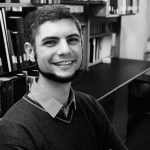 Dr. Nathan P. Gibson (2017-, Senior Research Associate, LMU-Munich)
Dr. Nathan P. Gibson (2017-, Senior Research Associate, LMU-Munich)
Nathan Gibson holds an MA (2011) and PhD (2015) in Semitic and Egyptian Languages and Literatures with an emphasis in Arabic and Syriac from the Catholic University of America. His PhD dissertation, supervised by Sidney Griffith, explored the situation of Muslim-Christian relations in ninth-century Iraq through the lens of “The Refutation of Christians,” a polemical work by the Arabic prose master Amr ibn Bahr al-Jahiz (c. 776–868/869).
He is currently assisting with the creation of the Bibliography of the Arabic Bible: A Classified and Annotated History of Scholarship. With over a thousand entries tagged by subject, manuscript, and biblical book, this resource is intended to be a comprehensive digital tool for navigating scholarship on the Arabic Bible, including its Christian, Jewish, and Samaritan translations and Muslim reception.
Articles Related to the Biblia Arabica Project
 Dr. Rachel Hasson (2016-)
Dr. Rachel Hasson (2016-)
Rachel Hasson holds a BA (2001) in General Studies and Arabic Language and Linguistics, an MA (2006) and PhD (2016) in the Arabic Language and Literature, all from the Hebrew University of Jerusalem. Her PhD dissertation was written under the supervision of Prof. Simon Hopkins. The topic of her thesis was “New manuscripts written in late Judaeo-Arabic from the Firkovitch collection – Description, classification and sample texts”. The work provided ten critical editions of unknown Judaeo-Arabic folk stories and poems from the Firkovitch collection, followed by a translation and relevant content-related introduction. Moreover, the work included a quantity estimation of the material and general details concerning folk literature in the Genizah, a classification of the corpus of folk literature in the Firkovitch collection, a description of some oral characteristics and main qualities of said material and a general linguistic description of the main late Judaeo-Arabic features of the texts. Her dissertation is a pioneering work in the field of Judaeo-Arabic folk literature in the Geniza.
Rachel Hasson was a Researcher at The Center for the Study of Judaeo-Arabic literature of the Ben-Zvi Institute in Jerusalem (2001–2013). Her work focused on identifying, cataloging and researching Judaeo-Arabic manuscripts from the Geniza. Her first main projects dealt with the reconstruction On the basis of manuscripts of Ya’qub al-Qirqisani’s commentary on Genesis and Tanhum HaYerushalmi’s commentaries on the Bible and his introduction to the Prophets. Later, she worked on all popular literature found in Judaeo-Arabic manuscripts from the main Geniza collections.
Within the DIP project Rachel Hasson works on comparative aspects of Ya’qub al-Qirqisani’s commentary on Genesis. From this commentary she gleans the translated sections which she compares with the translation of Rabbi Sa’adia Gaon, to whom al-Qirqisani refers plainly or indirectly in his commentary, and to that of Yefet ben ‘Eli, whose translation reflects the Jerusalem Karaite tradition of translation. Moreover, she will work on two other topics: 1. Early Judaeo-Arabic folk literature from the Geniza, i.e. from the classical period of the Geniza (untill the 15th century); she will focus on the connections between these texts to the later folk literature materials from the Geniza, (from the 15th century onward). 2. She will investigate reflections of Muslim influences in popular Judaeo-Arabic Biblical stories from the Geniza; this research intends to clarify the medieval intercultural relationships between Jews and Muslims in the context of shared narratives.
 Dr. Meir Bar-Maymon (2016-)
Dr. Meir Bar-Maymon (2016-)
Dr. Meir Bar-Maymon has a BA and MA degrees in Biblical Studies from Tel Aviv University (2009, 2011). His Master’s thesis is on masculinization and de-masculinization processes in the Book of Judges. His PhD dissertation (2015), “Mythologies of Masculinities and the Search of the [Male] Israelite Self in the Book of Ezekiel”, was written at Tel Aviv University and the Sciences Po Paris, under the supervision of Prof. Athalya Brenner-Idan and Dr. Michael Mach.
He approaches the Hebrew Bible through the prism of cultural studies, political theology and post-structuralism, with emphasis on the construction of the subject and the relations to his/her sovereign.
In the DIP project, Bar Maymon intends to work on Sa‘adia Gaon’s translation to the Book of Job, and to study the links between Sa‘adia’s translation and his theology. Bar Maymon’s main premise is that Jewish perception of self-subjectivity underwent a profound change as a response to Islamic challenges. Such a change will be looked for in Sa‘adia’s translation to Job, based on the understanding that translation is always a form of interpretation and theological updating. Sa‘adia’s translation will also be compared with Yefet Ben Eli’s work, and different aspects of Jewish subjectivity that may be reflected from the translations of both will be examined.
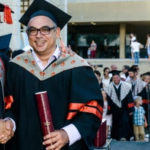 Dr. Nabih Bashir (2016-)
Dr. Nabih Bashir (2016-)
Dr. Nabih Bashir holds a BA in Sociology, Anthropology and Political Science (1994) and a Master’s degree in Political Science from the Hebrew University of Jerusalem (2005). Before further pursuing his advanced studies, he published several books in Arabic dealing with Israeli religio-political culture, the Shas Movement, Haredi society in the 20th century, and the formation of the Arab society in Israel in the shadow of the establishment of the State of Israel and its varieties of policies.
Later on, he took intensive courses related to Jewish Thought, Arabic Language and Biblical Criticism at the Hebrew University of Jerusalem (2008/9). Throughout the academic year 2009/10, he studied for an MA degree in Jewish Thought at Ben Gurion University of the Negev (his Master’s Thesis was entitled “The Synthetic Approach of Karaite Ya’qub Al-Qirqisani (~880 – ~950, Iraq) and his Biblical Exegesis: Genesis 18, 1-19 As a Case Study”, advisor: Prof. Daniel Lasker). In 2012 he published a new edition of “the Kuzari” of Judah ha-Levi in Arabic characters with rich and elaborate footnotes. In 2010 he started his doctoral studies focusing on the angels as a theological dilemma in the writings and exegesis of R. Saadia Gaon (882-942, Iraq), at Ben Gurion University (PhD advisor Prof. Daniel Lasker). He submitted his doctoral thesis in 2015, entitled “Angels in the Theology and Exegesis of Saadia Gaon: Human Being as the Purpose of Creation” (2015). His doctorate sought to elaborate the exact position of Saadia regarding angels in relation to human beings and elucidate Saadia’s argument that the human being is the goal of the whole process of creation.
Currently, Dr. Bashir serves as adjunct lecturer at Birzeit University. He teaches an introductory course on the history of Jews, Judaism and Jewish thought with a special focus on Judaeo-Arabic culture. Generally, his research focuses on the development of Jewish theology and biblical exegesis through the Middle Ages.
As a post-doctoral fellow within the Biblia Arabica project, Dr. Bashir intends to prepare a new annotated edition of Saadia’s Judaeo-Arabic commentary on Genesis with an English translation, including references to Christian and Islamic comparative sources and an Introduction covering the history of academic research in this field.
 Dr. Mirjam Lindgren Hjälm (2015-2017, Senior Research Associate, LMU-Munich)
Dr. Mirjam Lindgren Hjälm (2015-2017, Senior Research Associate, LMU-Munich)
Miriam Lindgren Hjälm holds an MA in Semitic Studies from the University of Uppsala and is in the process of submitting her PhD thesis at the same university in cooperation with Tel Aviv University. Her PhD thesis focuses on early Christian Arabic versions of the Book of Daniel with special attention paid to their translation techniques. As a point of departure, the method worked out by Professor Meira Polliack with regard to Judaeo-Arabic translations (1997) is used and the thesis offers a partial comparison between early Christian Arabic and Judaeo-Arabic (Sa’adya Gaon and Yefet ben Eli) techniques. Polliack supervised the project.
Apart from translation techniques, Miram’s interests include the use of the Christian Old Testament in the Byzantine and Oriental liturgy, ecclesiastical languages, and the perception of holy scriptures in these communities.
Within the DIP project, she intends to rework and publish her doctoral thesis. She also aims to write articles on the reception of other early Christian Arabic Old Testament books as well as on early liturgical Bible material in Arabic and the use thereof vis-à-vis texts in the traditional liturgical language(s) among Near-Eastern Christians.
Books
— Christian Arabic Versions of Daniel: A Comparative Study of Early MSS and Translation Techniques in MSS Sinai Ar. 1 and 2. Leiden: Brill, 2016.
— ed. Senses of Scripture, Treasures of Tradition: The Bible in Arabic among Jews, Christians and Muslims. Leiden: Brill, 2017.
Articles
— “Arabic versions, primary, Daniel”,”Arabic versions, secondary, Daniel”, “Arabic versions, secondary, Proverbs”, “Arabic versions, secondary, Chronicles”, “Arabic versions, secondary, Latter Prophets”,”Arabic versions, secondary, Job,” inThe textual History of the Bible, vol. 1. Edited by A. (general editor); E. Tov (volume editor); M. Polliack (area editor), Leiden: Brill, 2016.
— “The Christian Arabic Book of Daniel Extant versions, canonical constellations, and relation to the liturgical practice, with an Appendix of ‘The Song of the Three Young Men,’” Collectanea Christiana Orientalia 12 (2015): 115-178.
— “The changing face of the Arabic Bible: Translation techniques in early renditions of Ezekiel,” Open Theology 2 (2016): 832-848, https://doi.org/10.1515/opth-2016-0062.
— “The Major Prophets in Arabic: The authorship of Pethiōn revisited in light of the Sinai Findings,” in Senses of Scripture, Treasures of Tradition: The Bible in Arabic among Jews, Christians and Muslims, https://doi.org/10.1163/9789004347403_020.
Forthcoming Articles
— “Overview of the Arabic Manuscript production”,”Arabic, Letter of Jeremiah”, “Arabic, 1 Baruch”,”Arabic, Additions to Daniel”, in The Textual History of the Bible, vol. 2. Edited by A. Lange (general editor); M. Henze (volume editor). Leiden: Brill, forthcoming.
Research Associates
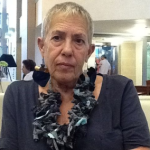 Prof. Athalya Brenner (2014-)
Prof. Athalya Brenner (2014-)
Prof. Athalya Brenner holds a BA in Biblical Studies and English Language and Literature (University of Haifa), MA in Biblical Studies (Hebrew University), and PhD in Biblical Studies (department of Near Eastern Studies, University of Manchester, England). She is Professor Emerita of the Hebrew Bible/Old Testament Chair at the Universiteit van Amsterdam, The Netherlands; and currently in Biblical Studies, Department Department of Biblical Studies, Tel Aviv University, Israel. She has a honorary PhD (2002) from the University of Bonn, Germany. This year (2014) she serves as the Vice President of the Society of Biblical Literature (SBL; http://sbl-site.org). She has worked in Israel, Europe, the US and Hong Kong; and has published widely in the fields of Semitic philology, feminist criticism, and literary and cultural analysis, and Early Judaism and its literatures, mainly as related to the Bible and its reception history across ages, places and religions. For more details of her scholarly activities see her Internet site, Athalya-Morah-leTorah.com.
Within the Biblia Arabica Project she will work on two research issues: 1. The links between the biblical stories about Abraham, Sarah and Hagar as they developed in their Jewish and Islamic afterlives through contacts and mutual dependencies, mainly as correlated to questions of territory; and 2. The development of the Islamic concepts on prophecy and list of prophets, from the biblical notions through the Qur’an and onwards, as reflected in literature of the first millennium CE. An additional task will be to support and enhance the visibility of the Project and its aims with international scholarly organizations, such as the SBL.
 Dr. Meirav Nadler (2013-)
Dr. Meirav Nadler (2013-)
Dr. Meirav Nadler-Akirav is a graduate of the Department of Arabic Studies in Bar Ilan University, where she received her BA, Teaching Certificate (1998), MA (2000) and PhD (2010). Her PhD thesis focuses on The Arabic Commentary of Yefet ben Eli the Karaite on the Book of Amos: a scientific edition of chapters 1 to 4, with the Hebrew translation, an introduction and interpretations. The PhD research was conducted under the supervision of Prof. A. Schlosberg and Prof. D. Doron. Her research focuses on Medieval biblical commentary, mainly the one written in Jewish Arabic in the 10th and 11th centuries.
Within the DIP project Nadler edits Yefet ben Eli’s commentary on the Book of Haggai, and also focuses on several other publications. She is currently working on two articles on Biblical commentary: on the literary-historical approach of Yefet ben Ali the Karaite, in his commentary on the Book of Amos; and on the translation of the words ulai and ulam in Yefet’s biblical commentaries, while comparing it to other biblical commentators. In addition, Nadler is also working on two entries for the THB: the first, together with Prof. M. Polilack, on Jewish Arabic translations of the early and latter Prophets; and the second, together with Prof. M. Polliack and Mr. Y. Zoran, on Jewish Arabic translations of the books of Ezra, Nehemiah and Chronicles.
Articles
— with M. Polliack and Y. Zoran: ‘Arabic Translations of the Books Ezra, Nehemiah, and Chronicles’. in The Textual History of the Bible, ed: A. Lange, E.Tov, Leiden:Brill, vol. 1 , 2016.
— with M. Polliack: ‘Arabic Translations of the Early and Latter Prophets’. in The Textual History of the Bible, eds. A. Lange, E.Tov, Leiden:Brill, vol. 1, 2016.
Forthcoming Books
— The Arabic Commentary of Yefet Ben ‘Ali on The Books of Haggai and Malachi.
Forthcoming Articles
— ‘The Literary-Historical Approach of Yefet Ben ‘Eli in his Commentary of the Book of Amos’. in: European Journal of Jewish Studies (forthcoming).
 Dr. Arik Sadan (2013-)
Dr. Arik Sadan (2013-)
Dr. Arik Sadan holds a BA in Linguistics and Arabic Language and Literature (2001) and an MA (2004) and PhD (2010) in Arabic Language and Literature, all from the Hebrew University of Jerusalem. He wrote both his MA and PhD theses under the supervision of Prof. Aryeh Levin, receiver of the Israel Prize for Linguistics (2010). Both theses deal with Arabic grammatical thought in general and the verbal system of Classical Arabic in particular. Having submitted his PhD thesis, Sadan traveled to Paris and Jena, Université Paris 7 and Friedrich-Schiller-Universität respectively, where he spent two years of post-doctoral research. His post-doctoral research project focuses on editing and analyzing an ancient treatise in the field of Arabic grammar which deals not only with grammar and syntax but also with Rhetoric and Logic, based on eleven different manuscripts. In 2012 Sadan published the scientific edition of this work with Harrassowitz Verlag (http://www.harrassowitz-verlag.de/dzo/artikel/201/004/4123_201.pdf?t=1328168239), as well as a revised English version of his PhD thesis with Brill (http://www.brill.com/subjunctive-mood-arabic-grammatical-thought).
Sadan’s research fields are Arabic grammatical thought, Arab grammarians, Classical, Modern and Colloquial Arabic linguistics and manuscripts in Arabic grammar and other fields. In the framework of the DIP project Sadan is working on preparing a scientific edition on the Judeo-Arabic translation and commentary of the Karaite Yefet Ben Eli to the book of Job, an edition that will be based on a few dozens manuscripts. This work will be published by Brill in two volumes: one for the scientific edition, and one for its translation into English. In addition, Sadan deals with various aspects related to the linguistic characteristics of Karaite manuscripts in Judeo-Arabic and with the comparison between these and manuscripts of other groups, for example Christian groups.
Articles
— Yefet b. Eli’s Translation and Commentary on the Book of Job: Preliminary Linguistic Observations Based on the Manuscripts in Arabic and Hebrew Letters. Proceedings of the the sixth Conference on Semitic languages organized by the Arbeitsgemeinschaft Semitistik in der Deutschen Morgenländischen Gesellschaft, the Chair of Semitic Languages at the University of Heidelberg and by the Chair of Hebrew Linguistics at the Hochschule für Jüdische Studien, the University of Heidelberg, 9–11 February 2015.
Forthcoming Books
— The Arabic Translation and Commentary of Yefet ben ‘Eli the Karaite on the Book of Job. Forthcoming. Karaite Texts and Studies, Meira Polliack and Michael G. Wechsler (eds.). Leiden: E. J. Brill.
— The Arabic Translation and Commentary of Yefet ben ‘Eli the Karaite on the Book of Job – Translated into English. Forthcoming. Karaite Texts and Studies, Meira Polliack and Michael G. Wechsler (eds.). Leiden: E. J. Brill.
Forthcoming Articles
— ‘Translation into Hebrew of the second part of the introduction of the Arabic Translation and Commentary of Yefet ben ‘Eli the Karaite on the Book of Job’ (in Hebrew). in Anthology of Hebrew translations of Karaite texts, eds. E. Yoram and M. Polliack, forthcoming.
— ‘Differences and similarities between Christian and Karaite translations of the Bible into Arabic: the case of the book of Job’. in Clivaz, Claire et al. (ed.). Proceedings of the international conference on current research in the field of the Arabic manuscripts of the Bible, Leuven, 22–24 April 2015.
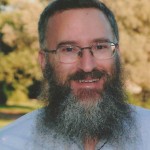 Dr. David Sklare (2013-)
Dr. David Sklare (2013-)
Dr. David Sklare received his BA from Yale University (1976) in the Department of Religious Studies. His PhD is from Harvard University (1992), Department of Near Eastern Languages and Civilizations, in the program for post-Biblical Jewish History and Hebrew Literature. His doctoral dissertation topic was “The Religious and Legal Thought of Samuel Ben Hofni Gaon: Texts and Studies in Cultural History.” The dissertation includes the edition of two previously unknown works by Samuel Ben Hofni Gaon in Judeo-Arabic, dealing with topics in legal theory.
Sklare’s research focuses on the culture (or cultures) of the Jews living in Arab lands in the Middle Ages and their literature in Judeo-Arabic. Among other topics, he has done work in the areas of legal literature and legal theory (both Rabbinate and Karaite), theology/philosophy, Jewish-Muslim polemics, Rabbinate-Karaite polemics, and biblical exegesis. Sklare directed the Center for the Study of Judeo-Arabic Culture and Literature of the Ben-Zvi Institute in Jerusalem. The Center’s projects have included cataloging manuscripts of the Firkovitch collections (held by the Russian National Library in St. Petersburg), most of the Judeo-Arabic fragments from the Genizah of the Ben-Ezra Synagogue in Cairo, as well as reconstructing, editing and translating Judeo-Arabic works in the areas of Jewish law and biblical exegesis.
Within the framework of the DIP Biblia Arabica project Sklare is working on two projects. The first is a catalog of the Firkovitch manuscripts containing biblical translations in Judeo-Arabic, of which Sklare has cataloged ninety shelfmarks so far. The second project is an investigation of the literary genre of biblical questions. The latter are very early Judeo-Arabic works from the beginning stages in the development of literal exegesis of the biblical text. The earliest surviving works of this sort are evidently from the middle of the ninth century. Sklare is preparing an edition and translation of the surviving fragments of two anonymous works of this genre as well as working on other tenth century fragments related to Sa’adya Gaon.
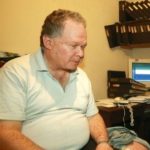 Yair Zoran (2017-)
Yair Zoran (2017-)
Mr. Yair Zoran completed his B.A. degree (Biblical Studies; Arabic language and literature) and M.A. degree (Arabic language and literature) at the Hebrew University of Jerusalem. His M.A thesis (supervised by Dr. Miriam Goldstein) was on Yefet ben Eli’s translation and commentary on the book of Obadiah. His critical edition of the text appeared as an article in Ginzei Qedem.
Within the Biblia Arabica project Yair is engaged in preparing a critical edition of Yefet’s commentaries on the books of Ezra, Nehemiah and Chronicles (with the help of Prof. Meira Polliack). Being blind from early childhood Yair is assisted by Mr. Shammai Fishman, a colleague and Judeo-Arabist himself, who reads the manuscripts out loud to Yair. Upon hearing the texts, Yair types them into a computer, which is connected to a braille monitor and a Braille vocal program. These enable Yair to see the texts and to translate them into Hebrew.
Of late, Yair has published an article called “The Great Name and its Merits in Islam and their Parallels in Jewish Literature” (Hebrew) in Bein Ever le-Arav 9 edited by Prof. Joseph Yuval Tobi. This is only a first part of his research on this topic, the second part of which will hopefully appear in the next volume of the periodical. On the 22 May 2017 at 18:15 he will be lecturing at the Hebrew University’s Kister-Banet forum, in connection to his work on the Yefet editions.
PhD Scholarships
 Iqbal Abd El-Raziq (2013-)
Iqbal Abd El-Raziq (2013-)
Iqbal Abd El-Raziq received her BA degree in Arabic and Islamic Studies (1997) and her Master degree (2012) from Tel Aviv University. She has written her Master’s thesis under the supervision of Prof. Uri Rubin, with the title “Idolatry and Idols in the Quran and Early Muslim Tradition”.
Abd El-Raziq is now enrolled for the first phase of her PhD studies within Biblia Arabica project. Her dissertation will be carried out under the supervision of Prof. Camilla Adang and Prof. Meira Polliack at Tel Aviv University. The dissertation topic will be, “The Revelation of Jewish Scriptures according to Early and Classical Islamic Sources”, where she will examine how the Muslim scholars have perceived the process of revelation and the mediums in which God has brought his books and messages to the Jewish prophets. She will also examine the Muslim scholars’ attitudes toward the Jewish scriptures and the way they have related to them.
Besides researching the Quran and the development of the early Islamic tradition in relation to it, Abd El-Raziq is also interested in the interactions and relationship between the Abrahamic religions (i.e. Judaism, Christianity and Islam), mainly as they are reflected in early and classical Muslim sources.
 Sivan Nir (2013-)
Sivan Nir (2013-)
Sivan Nir is a PhD student of the Bible program in the Department of Biblical Studies at Tel-Aviv University. He started working on his PhD dissertation last October (2013). Its title is, “The development of the literary character from late Midrash literature to medieval exegesis, as exemplified in the characters of Balaam, David, Jeremiah Ruth and Esther”. This dissertation expands upon the methods of his earlier MA thesis, “The Character of Ruth in Medieval Jewish Exegesis”.
Nir holds a Bachelor’s degree in Bible and Talmud (2011) and a Master’s degree in Bible (2013). Both degrees were awarded, summa cum laude, by the Department of Biblical Studies. During his studies he was part of the Dean’s Honors List (2009) as well as being awarded the “Bimat Hachoker” prize (2012).
Nir’s scholarly pursuits include: Medieval hermeneutics, possible connections between Jewish Arabic Medieval Exegetes and their European counterparts, the Influence of later midrashic Collections upon Medieval Jewish commentaries, and also the Minor Prophets in all aspects of modern research.
Nir’s contribution to the DIP project focuses mainly on translating exegetical texts relating to his dissertation from manuscript form, mostly of the important Karaite exegete Yefet Ben Eli. Currently, Nir is assisting Prof. Meira Polliack and Prof. Eliezer Schlossberg with preparations for their future edition of Yefet ben-Eli’s commentary on Zephaniah. Nir created this website with the assistance of Prof. Athalya Brenner. He updates and maintains the site on a regular basis.
Articles
— with Meira Polliack: “Many Beautiful Meanings can be Drawn from such a Comparison”: On the Medieval Interaction View of Biblical Metaphor in Exegesis and Poetry in Medieval Karaite and Rabbanite Texts, Karaite Texts and Studies Volume 9. ed. J. Yeshaya and E. Hollender. (Leiden: E. J. Brill, 2016,forthcoming), pp. 51-100.
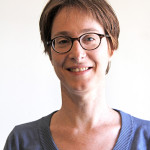 Yolanda Yavor (2014-)
Yolanda Yavor (2014-)
Yolanda Yavor started her academic studies (2006) in the Department of Arabic and Islamic studies at Tel Aviv University, and received the BA degree with highest honor in this Department (2009), where she also undertook her MA studies. She wrote her Master’s thesis, for which she received the MA degree with highest honor (2014) under the supervision of Prof. Camilla Adang. The thesis contains a textual and philological analysis of the story of the intended sacrifice of Abraham’s son in the Qurʾan (Q 37: 100-113) – Qiṣṣat al-dhabīḥ.The methodology used is a comparison between the Qurʾanic version of the story and its biblical parallels and versions of Jewish origin – post-biblical and pre-Qur’anic – with reference to other verses in the Qur’an, the early Sunni tradition and conclusions reached in Western studies.
Yavor is now enrolled for the first phase of her PhD studies within the DIP Biblia Arabica project. Her dissertation, which will be written under the supervision of both Prof. Camilla Adang and Prof. Meira Polliack, will be dedicated to a textual and philological analysis of materials from the Qurʾān and early post-Qurʾānic Muslim tradition that deal with the destruction of Judea (and related issues), in order to uncover the significations of this issue in early Islam. This is in keeping with Yavor’s general interest in the Qurʾan and the early Muslim traditions, as well as in the interactions between these corpora and the holy scriptures of Jews and Christians.
Affiliated Associates
 Dr. Geoff Martin (2017-)
Dr. Geoff Martin (2017-)
Dr. Martin is a specialist in the history of medieval Iberia’s Arabic-speaking Christians, a group many scholars now call Mozarabs. His essay, “A Mozarab Translator at Work,” will appear in the forthcoming volume Senses of Scripture, Treasures of Tradition. Since completing his dissertation, he has begun revising the work into a monograph, under the working title “The Mozarabs’ Bibles”. His project offers a thorough look at the Mozarabic translators who rendered the Psalms from Latin into Arabic, as well as the Mozarabic scribes/annotators who wrote hundreds of Arabic notes in Latin biblical manuscripts. Broadly speaking, he demonstrates that the Mozarabs employed Qurʿānic phrasing in their Arabic translations, but also that they drew upon Latin culture to a greater degree than many scholars have realized. Furthermore, rather than trying to determine whether the Mozarabs were Muslims who converted to Christianity or Christians who became Arab, as some scholars have attempted, Dr. Martin argues that the Mozarabic translators and annotators whom he studies get as close to the literal meaning of Mozarab—one who acts like an Arab—as we are going to get. He has won grants and fellowships from The Medieval Academy of America, The Warburg Institute at the University of London, and the University of Tennessee Humanities Center, among others.
Dr. Martin has also begun thinking about a second project. While he plans to continue interpreting the Mozarabs’ manuscripts, such as an eleventh-century canon law manuscript in Arabic, he also wants to learn and write about the Arabic-speaking Christian communities of North Africa. He is grateful to contribute his scholarship to the Biblia Arabica project, from which he has learned much about the medieval Mediterranean world.
 Dr. Amir Ashur (2015-2016)
Dr. Amir Ashur (2015-2016)
Dr. Amir Ashur received his PhD in the Rosenberg School of Jewish Studies at Tel Aviv University (2006). His doctoral dissertation topic was ‘Engagement and Betrothal Documents from the Cairo Geniza’ under the supervision of Prof. M.A. Friedman from Tel Aviv University.
Dr. Ashur’s research focuses on the ‘documentary Geniza’ – letters, legal documents and other documents that represent the daily life of the Geniza world. Being a former student of Prof. M.A. Friedman, he continues working with him on various projects relating to Geniza research, among them the celebrated ‘india Book’.
In the DIP project, Dr. Ashur will serve as an expert for identifying scribes, whenever it will be possible, and will examine the use of Biblical quotations in letters and other documentary materials, in order to determine the popularity of Biblical books in different times and places. For more details of his scholarly activities, see his site.
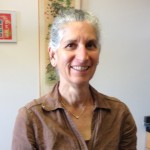 Dr. Ilana Sasson (2013-2015)
Dr. Ilana Sasson (2013-2015)
Dr. Ilana Sasson received her MSc from the Department of Genetics of the Hebrew University at Hadassah Ein Karem. She wrote a Master’s thesis that dealt with a mutation that causes a G6PD deficiency and its ramifications for certain Jewish populations of Iraqi descent. She received her MPhil as part of her doctoral studies, from the Department of Bible and Ancient Semitic Languages at the Jewish Theological Seminary in New York (2007), and her PhD from the same institution and department (2010). The title of her doctoral thesis is: “Methods and Approach in Yefet ben Eli’s Translation and Commentary on the Book of Proverbs.” She has been a post-doctoral fellow at the Department of Biblical Studies, Tel-Aviv University, under the guidance of Prof. Meira Polliack.
Her major academic interests are medieval translations and commentaries on the Bible, Karaism, Medieval Judeo-Arabic literature, Yefet ben Eli, and the Cairo Genizah. Her DIP projects include the preparation of a scientific edition of Yefet ben Eli’s translation and commentary on the Book of Proverbs; publication of studies in Yefet’s commentaries, and, in the next stage, the translation of his work on Proverbs into English.
Books
— The Arabic Translation and Commentary of Yefet Ben Eli on the Book of Proverbs, Volume 1: Edition and Introduction (Leiden: Brill, 2016).
Articles
— “The Mudawwin Revisited: Yefet ben Eli on the Composition of the Book of Proverbs,” JJS lxvii no. 2 (fall 2016): 327-339.
— “Ibn Balaam, Judah (Abū Zakariyyā Yaḥyā) ben Samuel”, “Ibn Quraysh, Judah”, “Ibn al-Tabbān, Levi (Abū ‘l-Fahm) ben Jacob”. in Encyclopedia of the Bible and its Reception, Edited by Dale C. Allison Jr. Berlin: De Gruyter, 2016.
— “The Judaeo-Arabic Translations of the Book of Psalms”, “The Judaeo-Arabic Translations of the Book of Job”, “The Judaeo-Arabic Translations of the Book of Proverbs”, “The Judaeo-Arabic Translations of the Five Scrolls.” in Textual History of the Bible, Vol. 1, Edited by Armin Lange and Emanuel Tov. Leiden: Brill, 2016.
— “‘The Matter Applies Not Only to Man’: Gender Equality in Yefet ben Eli’s Biblical Commentary and in the Karaite Legal System” [in Hebrew], Ben Ever La-Arav 6 (2014): 71-96.
— ‘The Book of the Law in the House of the Lord is a Copy (‘nuskha’) Written by Moses: Yefet ben Eli’s Commentary on 2 Kings 22:1-23:3’, Ginzei Qedem 10 (2014): 157-190.
— ‘Masorah and Grammar as Revealed in Tenth Century Karaite Exegesis’, JSIJ 12 (2013): 1-36.
— “The Book of Proverbs between Saadia and Yefet,” in IHIW 1(2013): 159-178.
— ‘Gender Equality in Yefet ben Eli’s Commentary and Karaite Halakhah’, AJS Review 37,1 (2013): 51-74.
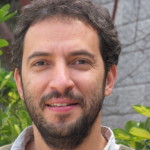 Dr. Roy Vilozny (2013-2015)
Dr. Roy Vilozny (2013-2015)
Dr. Roy Vilozny holds a BA in Arabic Language and Literature and Islamic and Middle Eastern Studies from the Hebrew University of Jerusalem (2000). His Master’s thesis, which describes the way early Imamate sources depict the life cycle of the Shi’ite believer — from his inception and until the end of time — was written under the supervision of prof. Etan Kohlberg of the Hebrew University (2004). In his doctoral dissertation (2012), supervised by prof. Meir M. Bar-Asher of the Department of Arabic Language and Literature at the Hebrew University, Vilozny delineates some fundamental theological principles and religious concepts of the Imamate Shi’a in its formative period (the 9th-10th centuries CE).
As a fellow at the DIP Biblia Arabica project, Vilozny examines the way early Isma’ili authors approached the Bible. His main focus is on the their unique interpretation of biblical prophetic stories and their significant role in shaping the Isma’ili cyclical history of the world and of humankind.
Forthcoming Books
— A 10th Century Isma’ili Guide to the Secrets of the Prophets (in preparation).
Forthcoming Articles
— ‘Some Antecedent Biblical Occultations according to the Shiite ghayba Genre’ (in preparation).
 Dr. Doron Ya’acov (2014-2015)
Dr. Doron Ya’acov (2014-2015)
Dr. Doron Ya’acov graduated with a BA in the Bible and Hebrew Language from Herzog Teachers’ College (2001). He received an MA in Hebrew Language from the Hebrew University of Jerusalem (2005). The title of his Master’s Thesis is “Plural Suffixes in Mishnaic Hebrew as Seen in the Kaufmann Manuscript”. He wrote his dissertation, “The Hebrew Language of the Jews of Southern Yemen (the Sharʻab and ʻAdan [Aden] Communities): Phonetics and Morphology of the Noun in the Mishnah”, at the Hebrew University of Jerusalem, under the guidance of Prof. Moshe Bar-Asher, and it was completed this past year.
Currently, he works in the academic secretariat of the Academy of the Hebrew Language and teaches in the Department of Hebrew language at Herzog College. He is interested, and engaged in, the study of the Hebrew language in all its periods, particularly Mishnaic Hebrew. He also studies the Arabic of the South-Yemenite Jews, on which he is currently editing a dictionary.
In the DIP project, Ya’acov intends to work on a traditional Yemenite Jewish reading of Rav Sa’adia Gaon’s translation of the Bible, including analysis of thetext’s grammar and special phenomena relating to the Yemenite oral tradition of Judeo-Arabic.
Forthcoming Books
— The Tifsīr – Rav Saadia Gaon’s Translation of the Bible according to The Yemenite Jewish Oral Tradition: Critical Edition with an Introduction, (forthcoming).
Forthcoming Articles
— ‘The Yemenite Jewish Reading Tradition of Rav Saadia Gaon’s Translation of the Bible – Phonology, Morphology and other Characteristics’, forthcoming.
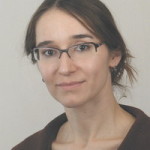
Dr. Marzena Zawanowska (2013-2015)
Dr. Marzena Zawanowska graduated from the Departments of Hebrew and Arabic Studies at the University of Warsaw (2001). She received her PhD in Bible exegesis from the Faculty of Oriental Studies at the same University (2008) in cooperation with Tel Aviv University. A significantly revised and largely expanded version of her dissertation, devoted to the Karaite Yefet ben Eli and his Arabic commentary on the Abraham’s cycle, and including a scientific edition of this commentary, was published by Brill in the series “Karaite Texts and Studies” (2012, http://www.brill.com/arabic-translation-and-commentary-yefet-ben-eli-karaite-abraham-narratives-genesis-1110-2518). Apart from Bible exegesis, her research interests include Hebrew Literature and Jewish Philosophy. Among other things, she was head of a major project in publishing all of Ch. N. Bialik’s (Hebrew and Yiddish) poetry in bilingual–Polish-Hebrew and Polish-Yiddish–editions, which appeared in 2012.
Within the DIP project Zawanowska is preparing a second volume of the afore-mentioned book, devoted to Yefet ben Eli’s interpretation of the Abraham’s cycle. The book will include an English translation of the text edited in the first volume. In addition, she is also working on a series of articles, in which she explores the complex attitudes of Medieval Karaite exegetes, active in the tenth and eleventh centuries in Jerusalem, to the question of biblical anthropomorphisms.
Articles
— Reading Divine Attributes into the Scriptural Text in Medieval Karaite Bible Translations,” in , Senses of Scripture, Treasures of Tradition: The Bible in Arabic among Jews, Christians and Muslims, Miriam L. Hjälm(ed.) (Leiden: Brill, forthcoming, 2017).
— The Bible Read through the Prism of Theology: The Rendering of Explicit Anthropomorphisms in the Medieval Karaite Tradition of Arabic Bible Translation,” Journal of Jewish Thought and Philosophy 24 (2016): 1–66.
— “The Limits of Literalism in Medieval Karaite Translations of the Hebrew Bible into Arabic,” in Commentaria, Leiden: Brill, 2016, pp. 241–262.
— “‘Where the Plain Meaning is Obscure or Unacceptable…’: The Treatment of Implicit Anthropomorphisms in the Medieval Karaite Tradition of Arabic Bible Translation,” European Journal of Jewish Studies 10 (2016): 1–49.
— ’Was Moses the mudawwin of the Torah? The Question of Authorship of the Pentateuch According to Yefet ben ‘Eli’, in Studies in Judaeo-Arabic Culture:Proceedings of the Fourteenth Conference of the Society for Judaeo-Arabic Studies, eds. H. Ben-Shammai, A. Dotan, Y. Erder and M. A. Freidman, Tel Aviv University, 2014, pp. 7*–35*.
— ‘Review of Scholarly Research on Yefet ben ‘Eli and His Works’, Revue des études juives 173 (1/2) (2014): 97–138.
— with Meira Polliack: “‘God Would not Give the Land, but to the Obedient’: Medieval Karaite Responses to the Curse of Canaan (Genesis 9:25)”, in The Gift of the Land and the Fate of the Canaanites in Jewish Thought, from Antiquity to the Modern Period, eds. K. Berthelot, J. E. David and M. Hirshman, Oxford:Oxford University Press, 2014, pp. 112–152.
— ’Islamic Exegetical Terms in Yefet ben ‘Eliʼs Commentaries on the Holy Scriptures’, Journal of Jewish Studies 64 (2013): 306–325.
— ‘In the Border-Land of Literalism: Interpretative Alterations of Scripture in Medieval Karaite Translations of the Bible into Arabic’, IHIW 1 (2013): 179–202.
Forthcoming articles
— “‘Where the Plain Meaning is Obscure or Unacceptable…’: The Elimination of Implicit Anthropomorphism in Medieval Karaite Translations ofthe Biblical Verses into Arabic”. in: European Journal of Jewish Studies, forthcoming.
— ‘The Limits of Literalism: Yefet’s Approach to Bible Translation’. in Commentaria, Brill, Leiden, forthcoming.
MA Scholarships
Roni Cohen (2015-2016)
Roni Cohen received his BA degree in Jewish History and Biblical Studies (2012) from Tel Aviv University with honors. Cohen is currently composing his MA thesis (2013-) on the structure, origins and hermeneutic elements of “Midrash Va-Yosha” under the supervision of Prof. Meira Polliack and Prof. Elchanan Reiner.
His major academic interests encompass exposing the presence of hermeneutic elements in texts that are not considered to be exegetic, such as late Midrashic texts, medieval folklore and other types of Jewish literature. Within the DIP project Cohen deals with the administrative aspects of creating an anthology of Karaite works produced in the Islamic domain, including a serious amount of Karaite Bibilcal exegesis of great commentators such as Jacob Qirqisany, Yefet Ben Ali and David Ben Boaz. The anthology project is led by Prof. Yoram Erder and Prof. Meira Polliack and will contain a wide range of works from medieval Karaites in the Islamic milieu all translated into Hebrew, as well as introductions and commentaries by prominent researchers of Karaite literature.

